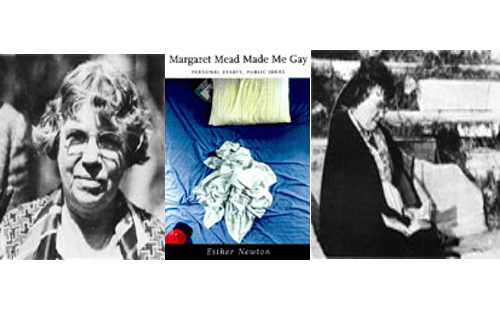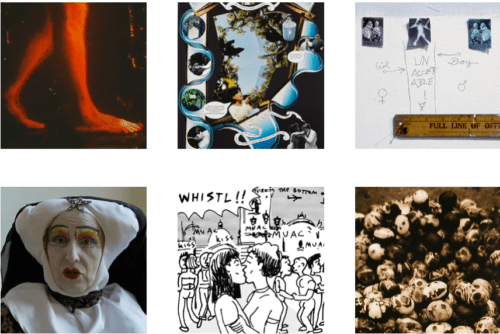Conclusion
To recall my earlier point, postcolonial and race studies have had an uneasy relationship with an ethics endorsing hospitality (alternately caretaking) precisely because the latter can seem synonymous with an acquiescing to injustice and unevenness. In my urging of an expanded postcolonial and race studies project informed by theories of feminism, queerness, histories of bioscience, and companion species, one would not abandon justice and fairness (simplified between two historical antagonists) but temper it with a healthy surrender to the complexity of contingent and arrayed obligations. If we are quite literate in the notion of history as a dialectical unfolding of antagonisms, how might we also entertain vital movement contoured as cascades of interdependent webs of enmeshed reproduction, or better yet, enmeshed generativity? The politics this yields—if we were to translate this into an identity politics—is one on behalf of the insect and unicellular organism as much as the racialized subject. To be sure, I am not arguing that Ghosh’s novel requires or even endorses an identity politics now in the service of the-animal-as-centered-subject (Ghosh’s novel, The Hungry Tide, in fact, questions the imperialist disregard for Dalits going hand-in-hand with the eco-preservation of the Bengal Tiger.) Instead, I distinguish a postcolonial and race studies project in an identity politics mode—illustrated by those critics fixated on the subaltern female counterscientist, Mangala, as a figure lost to history and thus in need of counterfactual (re)construction—from one in a more queer mode that regards Mangala, for instance, as part of a lesson on the necessary caretaking of a more broadly based chimeracological worldview.
The novel, in fact, plays with whether a human person is the ultimate reference for Mangala. That is, in the narrowest sense, Mangala refers in the novel to that distinctive female character contemporary to Ronald Ross, “found at Sealdah Station […] dirt poor and [with] hereditary syphilis”, uniquely gifted in microscopy, and who “chanced upon […] the malaria [bug’s] recombinatory powers.” 62 This Mangala is subaltern, expert, silent, infectious, and parasitic—in the sense of (ab)using the labs of her British employers, which she is supposed to sweep rather than tamper with. Also, she is host/age to parasites: from her nativity, she’s been entangled in a contagious, cross-species milieu—gestationally with the spirochete Treponema pallidum that causes syphilis and in adult life with the protist Plasmodium. At one point, Murugan describes Mangala as god-like, “the mind that sets things in motion.” 63 In this sense, Mangala stands for a principle of generativity less manthropomorphic and monotheistic (as in the Judeo-Christian tradition) and more interspecial, plural, and microorganismal. Indeed, Mangala evokes the homonym mancala, itself a derivation from the Arabic word naqala (“to move”), but which Ghosh’s readers might be more familiar in its incarnations as various Egyptian, Syrian, and Lebanese “sowing games” in which the key principle is to distribute seeds or stones in a pattern of holes (centrifugalizing motion) and, intermediarily, to gather up seeds or stones that have (centripetally) collected in these pockets in order to redistribute them again. Counterposing the singular portrait of the Nobel-Prize-winning British Man (Ronny Ross) helping to conquer disease and tame the tropics for the comfort of the pale races (i.e., the vital extension of their species being) is not a subaltern, brown-skinned woman, then, but more of a kinesthetic practice of careful sowing, a pedagogical repetition in assembling and reassembling seeds, of combining and recombining them, not in stable fixed holes (empty vessels), but in changing, animate hosts.
In a political mode, we would want to proclaim as to whether viscerally learning one’s integration with a multispecies ecology, or put another way, one’s composition as multiple species of distributed intelligence, is ultimately resistant to capitalism or to racialized colonial processes of extraction. Is such a whole earth, ecological, even cosmological view of the connectedness of all things (alternatively, the human’s diminishment as a particular species organization in a vast web of nature-cultures) incongruent with the perpetuation of exploitative violences? Ghosh’s novel not only leaves that question open-ended (by concluding the novel at the moment of Antar’s and the reader’s “crossing over” to this connected, chimericalogical ontological feltness) but also implies that underlying such a question is the yearning for the linear continuity of history—the future answering or resolving the past’s unresolved losses/violence, or assessed in terms of the past’s dialectics—that paradigm of movement qua temporal unfolding. 64
By dwelling at length on the types of hosting work the novel explores and by figuring caretaking and hospitality/hosting on a continuum, my intent has been to call attention to an enlarged notion of reproduction and reproductive politics with which the novel is concerned, one that is not confined to sexual intercourse, embryogenesis, parturition, and neonatal care (nursing, etc.) but encompasses the entire lifecycle of the organism, and sometimes the lifecycles of other species in generations ,backward and forward. The larger project of femiqueeer studies poses the question of how the presumption that reproduction is only a small temporal period beginning with fertilized gametes and ending with “birth” forecloses the analyses of wider, exo-maternal processes as also part of reproduction.
- Ghosh 2001[1995]: 245, 249, 251-3.[↑]
- Ghosh 2001]1995]: 249, 251-3.[↑]
- What that desire forecloses is not so much the surprise break (evolutionary singularity) that lies beyond an apocalyptic ending but a more lateral spatialized and cyclic or spiraled notion of time, where recursive cascades producing something more on par with the Ouroboros, which Susan Merrill Squier, in this volume, has recently recovered for feminist science studies as an enigmatic figure good to think with.[↑]



